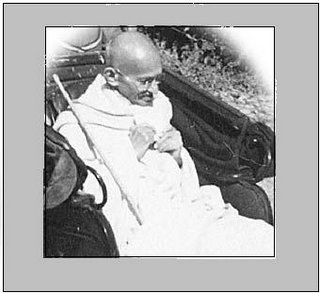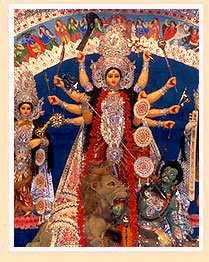______________________________________________________________
Last week I was required to churn out a write-up for a souvenir which was being readied for release on the occasion of a state level philatelic exhibition. An accustomed user of net and e-mail, I could not have posed as the real well-wisher of the group, for I hardly write letters these days. But then I had a task at hand--to write, putting myself in the shoe of somebody who could be a well-wisher unto them, who still loved to write and wait for epistles, and who longed for the olden days of written communication to return.... I attempted something which was eventually published and I have reports that people liked my write-up. Let it be there in my blog too.
_______________________________________________________________
One of the current additions to English vocabulary is the word “snail” or more clearly “snail mail”. Oxford Advanced Dictionary categorises it as a humorous word and goes on to define it as follows:
[…an expression]
“used especially by people who use e-mail on computers to describe the system of sending letters by ordinary mail”.
And as per the Random House Unabridged Dictionary, the word originated sometime during 1980-1985. Not quite old—everything is in our living memory!
Let us listen to those hard core in the virtual world what they have to say. Oh, they are unsparing! They go on to discourage the practice of writing letters to an extent that they think writing one’s postal address as the header of any electronic communication is a wastage of bandwidth!
If speed is the only criterion of communication, then what the netizens believe about postal system is true. Letters do reach later than e-mails. (Mails killed by spam killers are exceptions.)
Now a question follows from it: in matter of communication, do we need speed and speed alone? Doesn’t content play any role here? Imagine a nicely written letter and the feeling it expresses. Let me draw a parallel. There is a range of terrific software for imaging these days. So, should painters to leave paintings on canvas and go over to electronic creation of their arts? Are collectors to stop collecting such paintings paying whooping sums in the auction house at Sothebey’s because electronic imaging has arrived?
Here the argument goes to stress the romantic aspect of letter writing. Maybe one feels it quite outmoded in the present commercial age to think of writing letters just for the sake of churning out emotions. Lo, emotions are not to be expressed; they are to be stifled, if could not be articulated! No need to appeal through a letter to forget misunderstanding, to pray for help at the time of need, to thank for the favours shown, to convey the depth of longings in separation, to share the joy of success…. There is no need—humans have really changed!
Then, is chasing of commercial goals the only purpose of life? Don’t we hear many nice words of philanthropy even today? Such as from rich fellows like Bill Gates? In other words, the so-called romantic things have still their place in life. Love letter, evocative poetry for instance. Who doesn’t like to preserve his or her first love letter? Who doesn’t want to feel the pleasure of stroking one’s collections that have past inscribed on them? Why the collectors place premiums on a memorabilia like a love letter of Marilyn Monroe or Elvis Presley?
Let us consider another aspect, the inspirational or the emotional side of the stories of success. Life’s achievements are not to be rejected as events of quotidian insignificance. They are to be relived again and again for making a life worth lived. Successful people in all ages like to announce proudly, how they reach from rags to riches. So, what can be a better way to relive the past than going through a bunch of letters or a stack of private diaries? Or even a few albumful of photographs? What can give that intimate feeling if they are not letters full of ambitions, resolve and hope? Handwriting accentuating care, courtesy, and self-discipline? Themes redolent of times that have been vanquished and brought to their knees?
Some would love to argue: letter writing is a thing of the past. And they have those all-pervading cell phones in their mind when they say so. Like the recent issue of the India Today (October 2, 2006 issue). While enumerating thirty fade-outs under caption “Gone With the Wind”, it has this to say about the love letters:
Scented, poetically-driven letters, sometimes stained in blood, usually the best way to express emotions.Replacemet: Instant messaging. Dte 2nite?
It also says the same thing about the inkpens which have been replaced by ballpoint pens, Amar Chitra Katha replaced by Harry Potter, and so on. I wonder how these conclusions have been derived. On the one hand it is stressed that writing—or for that matter writing of love letter—is out of fashion, and on the other hand, it goes on to say that ballpoint pens have replaced inkpens. What these ballpoint pens are for if they are not for writing, and is there any reason why people should sign only the cheques using the ballpoint pens and not write their love letters using that?
Sometime back there was a move by the producers of greeting cards to project that greeting seniors by SMS constitutes bad manners. They did not pursue and the result achieved by this move is as unspectacular as the half-hearted efforts behind it. But nevertheless it underscored a point: not all uses of mobile phones are to be accepted without question. Does it not remind you of a reckless rider on a crowded road receiving calls in their mobiles while speeding at above 40 kmph? How do people tolerate the corruption of English through such anti-lingual trends? Like IMO=in my opinion; IMHO=in my humble opinion; jus4dat=just for that; and so on.
One thing is worth considering: people write letters to discharge their social obligation, say to congratulate, to wish, to inform, etceteras. All these are formal and the matter ceases with just wishing. Mobile phones can do that. But think of a situation where a letter is just the beginning of a long process of expenditure, and of obligations propelled by the force of tradition-bound social system. In other words, nuclear families are less likely to write letters than their joint family counterparts. So self-contained they are! Not to write a letter is economically less taxing. Love and affection is limited to the immediate family members; and dependence is so very unfashionable? So why write letters and invite burden? Medical insurance, life insurance will take care of unforeseen situations; club will take care of urge for sharing and social togetherness. Where is the space for relations? And where is the need for letters?
If writing a letter to the familiars is not the preferred choice of this self-contained generation, then what about writing to unknown or less known? Yes, I am talking about pen pals, or the penfriends. The desire to make friendship is but human and sharing with somebody sitting at a distance has a charm of its own. ‘Look my friends are not only from my street or town. I’ve friendship with people living in the other side of the globe.’ ‘Look my friend has got an X-Box 360 already, but here in India we’ve to wait for some more days to get it.’ ‘Look, my penfriend is so lucky; she has a turtle, a cat, a puppy, but my mom doesn’t allow me to have a pet even.’ It’s not exactly bragging, but an expression of a bolstered feeling born out of pen friendship.
Pen pal or key pal? Why write letters and make penfriends and why not key in your feeling and make key pals. Chat anything and everything; nobody is stopping you. Add a web camera and see each other. Click ‘go private’ menu (and pay through your cards) and see (and show) more of you. Why write letters then?
The real question is whether you know writing a letter or not. If the answer is ‘yes’, then you would know what writing gives which chatting fails to. All through the ages illiterates have not written letters and post offices have thrived, letters have not gone out of sight. And now we have these SMS-savy illiterates (should I say signiterates?), and post offices will survive along with their bundles of letters. Remember: Your friend is waiting for your letter; it is for you to write or not. Even there are people waiting for your letters, sitting behind bars! For details, you may visit the website Friends4Lifers.com.
Letters have created wonders. An illustrious father writing letters to her daughter and infusing in her the best of human values and characters—yes, I am talking of our beloved Prime Minister Jawahar Lal Nehru and his immortal letters to another Prime minister in making, Indira Gandhi, the child, suffering the pangs of separation! Can you beat it? Can any SMS create a prime minister material? Judge it. Think if you can write a letter. Decide if you have not forgotten all the alphabets!
____________________________________________________________
By
A. N. NandaRourkela/14=10=2006________________________________________________________


